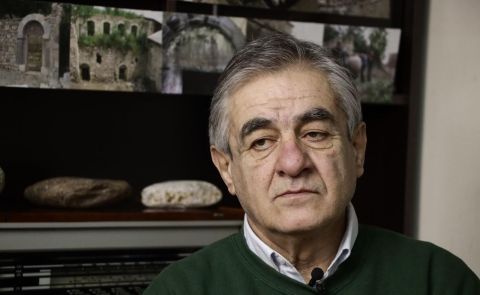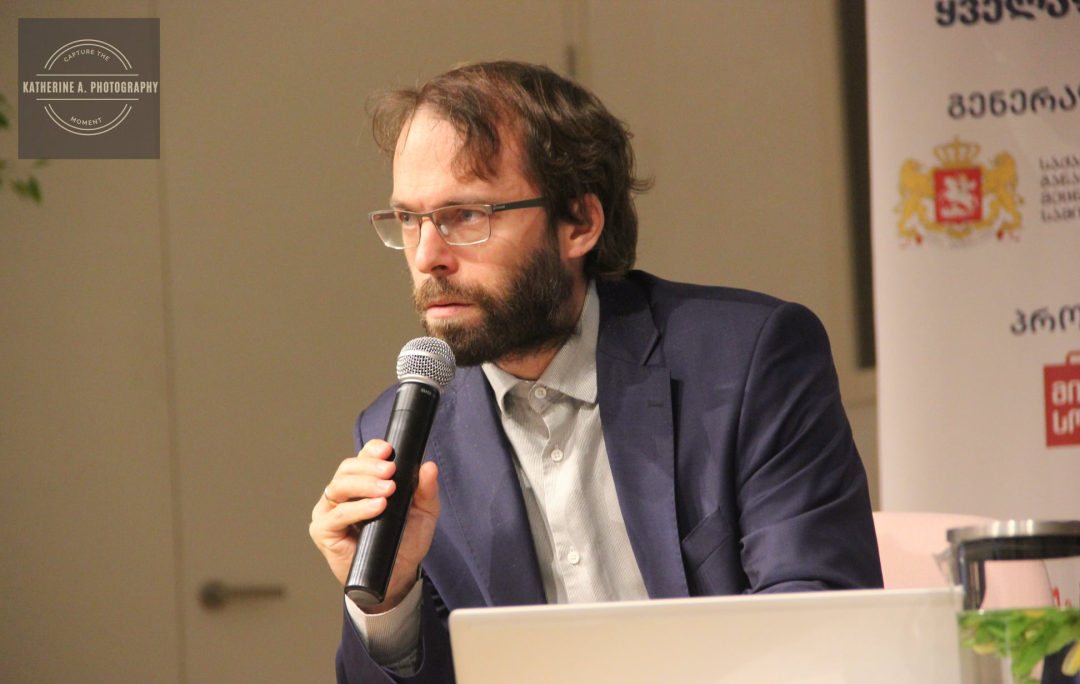
David Teurtrie: Why BRICS membership matters more than the West appreciates

In August 2024 Azerbaijan applied for BRICS membership. In a discussion with a former Ambassador to the World Trade Organisation hailing from one of the biggest countries in this acronym – Brazil, Russia, India, China, South Africa – Caucasus Watch was told not to expect much from this development. This is a big organisation, with a broadening base of participants, which may find it difficult to do more than agree on their non-aligned or “multi-aligned” strategy. Indeed, one would not dare creating an acronym that would add to the mix Iran, the United Arab Emirates, Egypt, and Ethiopia.
While broad membership makes common objectives a difficult proposition, BRICS membership is not entirely inconsequential. Ankara followed Baku on September 2 to apply for membership. Over 20 countries stand in line. The institutional development of BRICS and particularly New Development Bank is meant to be an alternative to the World Bank and the IMF. Perhaps more significantly, there is now a discussion to develop among the BRICS member states a new payment system nexus, alternative to Swift, called Bridge.
To understand the significance of BRICS membership, Caucasus Watch reached out to David Teurtrie, PhD, the Director of the French observatory of BRICS (Observatoire français des BRICS). Dr. Teutrie is a member of the French Institute for Slavic Studies and has worked with the cultural network of the French Ministry of Foreign Affairs in the South Caucasus and Russia. He lectures in political geography at the Institut Catholique d'Etudes Supérieures (ICES) and at the Institut national des langues et civilisations orientales (INALCO, Paris). Recently, his book “Russie: le retour de la puissance” (Dunod, 2024) was awarded the Albert Thibaudet prize of the French Academy of Political Science.
In your latest book you refer to Russia’s “Economic Sovereignty” strategy. How was that strategy affected by the freezing of $350bn of the Central Bank’s reserves in the aftermath of invasion of Ukraine.
Russia's strategy of economic sovereignty is multi-faceted: import substitution in the strategic sectors of the economy; de-dollarization of the economy and foreign trade; and accumulation of financial reserves, which begun in the early 2000s.
The Russian authorities’ approach to foreign reserves changed in early 2020s, when the rising tensions with the West increased the risk of Russian assets being frozen. The Russian authorities decided then, in 2021, to fully de-dollarize the Russian Sovereign Fund and diversify the assets of the Russian Central Bank before February 2022. A significant proportion of these funds have been converted into euros, which explains the scale of the frozen sums: either the Kremlin did not expect the Europeans to apply this type of sanctions, or the RCB did not have the time or the means to convert these sums into safe assets.
However, the freezing of these assets hasn’t had a major impact on the strategy of economic sovereignty, which became a real necessity because of massive Western sanctions. Moreover, the RCB still controls around $300 billion, equivalent to the Bundesbank's reserves. Nevertheless, the Russian Central Bank has now rather limited options for its foreing exchange reserves: essentially gold and yuan. Finally, Russian economic policy has shifted from fiscal orthodoxy involving the accumulation of financial reserves to “military Keyneisianism” with a sharp increase in public spending.
India, China, and Russia do not seem to see eye-to-eye on how the global economy should look like. However, within BRICS, there seems to be a consensus on creating a system of non-dollar transactions. Is this prospect viable?
As India, China and Russia are great powers with different economic profiles, it's not a surprise that they don't share exactly the same vision of global economic transformation. Nevertheless, they have one thing in common: they reject Western hegemony, especially the weaponization of the dollar by American authorities. In the age of virtual currencies and blockchain, it seems technically feasible to create an alternative platform, which is currently being developed under the name of BRICS Pay.
While there are undoubtedly numerous technical adjustments in terms of compatibility with existing systems, the problem is more of a political nature: which authority will control this system? What are the guarantees that it will not facilitate capital flight or illicit transactions? Finally, what guarantee is there that economic players will be ready to ignore any US sanctions against this new system? Many questions remain, but one thing is certain: India, China and other emerging countries no longer wish to depend on the dollar and the restrictions imposed by Washington, as demonstrated by the sharp increase in their trade with Russia since the start of war in Ukraine.
The Emirates appear to have a special relationship with all BRICS stakeholders. A deep rupee and ruble market, a deep dollar market, and a deep Euro market. Is the UAE the new London, settling global financial transactions, or the new Casablanca where rival financial systems intersect?
There's no doubt that the UAE benefits from both the dynamism of the Middle East and its role as a logistics and financial hub between Europe and Asia to establish itself as a major financial centre. The ability to act as an interface between sanctioned Russia and Iran and the rest of the world is an additional asset. London can no longer serve as a rear base for Russian capitalism because of the sanctions. In reality, the UAE is neither London nor Casablanca. Casablanca serves as a financial interface with Africa, while London remains a world-class financial centre with long historical roots and traditions. And Great Britain is part of the dominant Anglo-Saxon world which retains dominant positions in world geopolitics. EAU is a far more recent financial centre and depends on foreign powers for its security. Nevertheless, it is undeniable that the policy of sanctions is enabling the rise of non-Western financial centres such a UAE.
Azerbaijan has just applied for BRICS membership. Turkey was next in line. Is this choice compatible with the status quo in global financial governance?
The BRICS group is experiencing a real and rather unexpected dynamic. Indeed, it wasn't until the crisis in Ukraine and the massive sanctions against Russia that the group created such a buzz among emerging countries. To the contrary, the West expected countries of the global south to keep their distance from an “isolated” Russia and from China, whose relations with the United States were rapidly deteriorating. This has not proved to be the case, illustrating emerging countries' fears of a return to Western hegemony and their desire for a multipolar world in which they can freely choose their political, economic and financial partners. Irrespectively of how the BRICS' dynamic evolves, maintaining the status quo seems untenable. Western countries are in demographic decline, affected by de-industrialisation, and often over-indebted (Italy, France, USA), living beyond their means. This can only lead to a rebalancing of global financial governance in the medium term.
Is BRICS a talking shop or is it a significant institution?
BRICS was originally created as an equivalent to G7, bringing together major emerging countries. For a long time, the group maintained this flexible format as a loosely institutionalised forum. The creation of the New Development Bank in 2015 was an important step in the group's institutionalisation. The 2024 enlargement implies a new stage in institutionalisation, with the necessity of formalized membership rules.
Under the Russian chairmanship in 2024, we can observe a trend to broaden the sphere of cooperation including more political and security-related matters. BRICS retain a flexible format for multilateral cooperation, but the West would be wrong to dismiss them as a talking shop marked by divisions between member states. The BRICS group responds to a real need to revitalize multilateralism with new approaches and creates new alignments between member states.
Interview conducted by Ilya Roubanis
See Also


Irina Mamulashvili: Electoral Interference is a Playbook, not a Recipe

Giorgi Gakharia: The EU Should Engage Georgia Despite Its Democratic Backsliding

Peace or Capitulation? Shahverdyan on Armenia-Azerbaijan Agreement and the Nagorno-Karabakh Crisis

Ali Mousavi Khalkhali: Iran Will Avoid Conflict in the Caucasus

